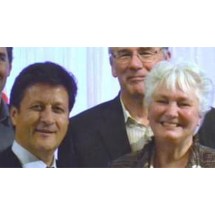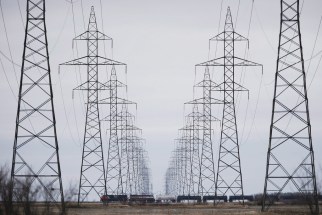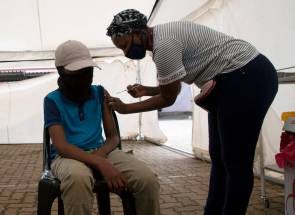‘An important step’: first Indigenous land acknowledgement voiced in legislature
Read this article for free:
or
Already have an account? Log in here »
To continue reading, please subscribe:
Monthly Digital Subscription
$0 for the first 4 weeks*
- Enjoy unlimited reading on winnipegfreepress.com
- Read the E-Edition, our digital replica newspaper
- Access News Break, our award-winning app
- Play interactive puzzles
*No charge for 4 weeks then price increases to the regular rate of $19.00 plus GST every four weeks. Offer available to new and qualified returning subscribers only. Cancel any time.
Monthly Digital Subscription
$4.75/week*
- Enjoy unlimited reading on winnipegfreepress.com
- Read the E-Edition, our digital replica newspaper
- Access News Break, our award-winning app
- Play interactive puzzles
*Billed as $19 plus GST every four weeks. Cancel any time.
To continue reading, please subscribe:
Add Free Press access to your Brandon Sun subscription for only an additional
$1 for the first 4 weeks*
*Your next subscription payment will increase by $1.00 and you will be charged $16.99 plus GST for four weeks. After four weeks, your payment will increase to $23.99 plus GST every four weeks.
Read unlimited articles for free today:
or
Already have an account? Log in here »
Hey there, time traveller!
This article was published 29/11/2021 (1470 days ago), so information in it may no longer be current.
The reading of four short paragraphs within the Manitoba legislative chamber ushered in a new era for the province.
An Indigenous land acknowledgement became part of regular proceedings for the first time in the government’s history.
Speaker Myrna Driedger recited the new land acknowledgement immediately after the prayer Monday, and was met with applause from assembled MLAs and invited Indigenous leaders, who witnessed the occasion from the gallery.
Premier Heather Stefanson thanked representatives from First Nations, Métis and Inuit organizations seated in the gallery during question period and described the day as “historic.”
“This is long overdue,” the Progressive Conservative leader said. “I believe this is an important step in our collective efforts to advance reconciliation and move forward together.”
The long-awaited land acknowledgement was the product of a consultation process former premier Kelvin Goertzen ordered in mid-September, following calls by the Opposition NDP for a formal statement. A number of Indigenous groups, including the Assembly of Manitoba Chiefs, Inuit Association of Manitoba and Manitoba Metis Federation, were consulted on the language use in the message.
Prior to Monday, the legislative assembly was one of the few public institutions in the province that did not open with a land acknowledgement.
Manitoba treaty commissioner Loretta Ross said hearing First Peoples — including the Anishinaabeg, Anishininewuk, Dakota Oyate, Denesuline and Nehethowuk — acknowledged at the seat of government was a significant recognition of their history and contributions to the development of the country.
“What the land acknowledgement does is it recognizes there is this shared history and therefore a shared responsibility between the parties that entered into the treaty making process here in Manitoba,” Ross said.
Ross said the treaties formalized the relationship between First Nations and non-Indigenous people both at the individual and institutional level. However, once those agreements were entered into, the relationship “went off the rails,” and it’s taken a long time for the voices of Indigenous people to be heard and for their history to be recognized, she said.
“When we’re talking about reconciliation, one of the big things is that relationship,” Ross said. “Now we have to look at how we move forward. How do we move forward, how do we acknowledge that history, and that relationship and what does that mean for us now?”
Manitoba Metis Federation president David Chartrand said it was a proud moment.
“You know, 151 years ago, we formed this province as the Métis, we paid a price for it,” Chartrand said. “Trying to fight our way to be acknowledged and even fitting somewhere in Confederation has been a hell of a journey for us.”
The consultation process to develop the language for the land acknowledgement was also a departure from past experiences with the government with ongoing communication to ensure the federation was in agreement, he said.
“This government now is trying to really begin a shift of what consultation is. It made me feel as a leader that maybe we’re turning a page, but I think we’ve got a novel yet to read,” Chartrand said.
Manitoba Inuit Association executive director Rachel Dutton regretted only a handful of Indigenous people invited to witness the occasion, as the Manitoba Legislative Building is currently closed to visitors amid the COVID-19 pandemic.
“Ideally, it should have been opened up to bring community into a place that really does belong to them as citizens of Manitoba and as Inuit who live here,” she said.
With the addition of a land acknowledgement at the legislature, Dutton said all Manitobans, Canadians and political leaders “need to become very comfortable with acknowledging First Peoples.”
“This isn’t an exercise,” she said. “It could be seen as a step of reconciliation, but it has to be a step of many to follow and it should be practised on a daily basis.”
Assembly of Manitoba Chiefs Grand Chief Arlen Dumas echoed that sentiment, saying he expects the land acknowledgement will facilitate an “evolution that needs to happen in this province.”
“I will ensure that the premier will be challenged all the way, to bring a spirit and intent to those words, so that we can work with everybody else in the province to continue to elevate and make everything better for everyone,” Dumas said. “When First Nations do well, we all do well.”
According to the province, the government will formally codify the land acknowledgement through the standing committee on rules of the house in the near future.
danielle.dasilva@freepress.mb.ca

Our newsroom depends on a growing audience of readers to power our journalism. If you are not a paid reader, please consider becoming a subscriber.
Our newsroom depends on its audience of readers to power our journalism. Thank you for your support.











